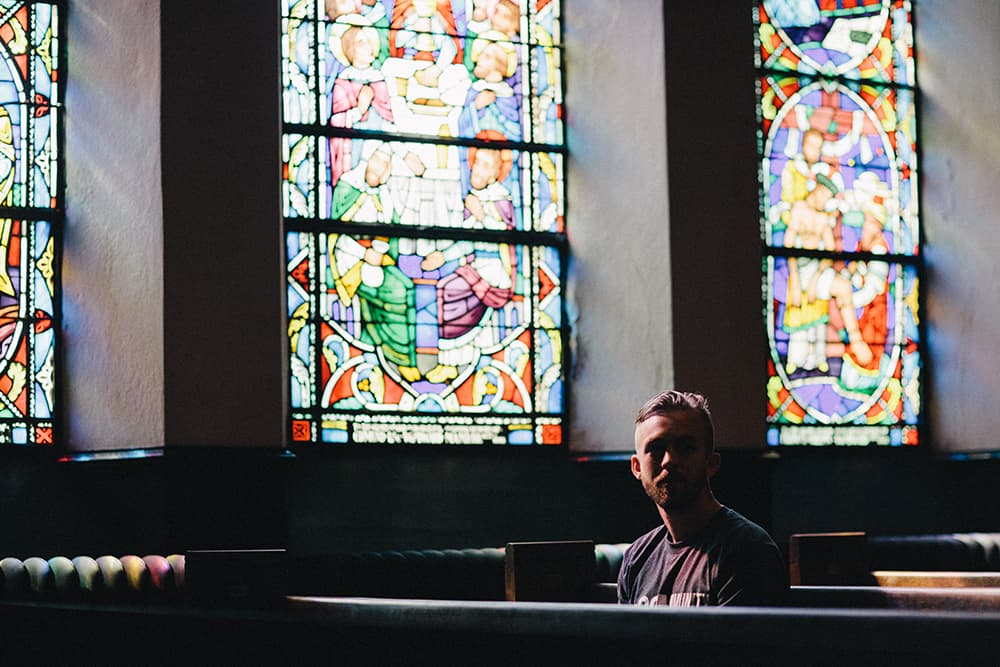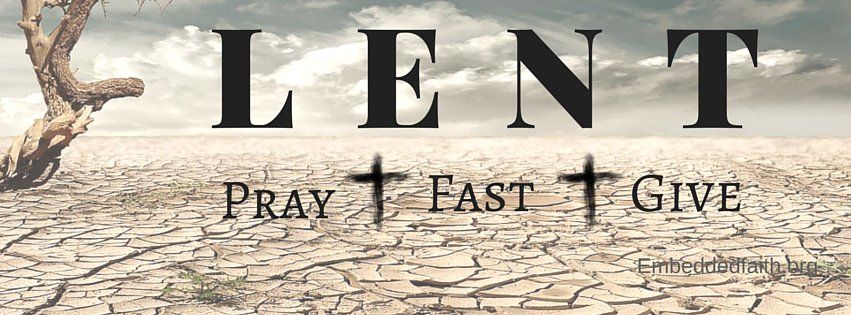Some years ago a friend was sharing her frustrations with one of her kids who at that point was in middle school. She explained how they would spend more time, energy, and effort to appear to be doing their homework than actually doing it. They would go through these elaborate dramatics of pretending to be studying for an upcoming test when they actually weren’t. What was particularly maddening was that since her son wasn’t doing well in their classes they ended up hiring a tutor for him. About three sessions in, the tutor had confided to the parent that there wasn’t any learning disability, problem with the teacher, or even difficulty understanding the classwork. For whatever reason, the kid had gotten into their head they had to prove to everyone how hard they were working – rather than actually working.
Thanks so much for stopping by to read my homily for the EIGHTH SUNDAY IN ORDINARY TIME -February 27, 2022, for sharing it on your social media posts and your feedback and comments… I’m also grateful for all those who’ve asked for the audio version and share them as well at SOUNDCLOUD click HERE or from ITUNES as a podcast HERE. May the Lord be glorified in your reading and sharing Sincerely in Christ – Father Jim
Turns out that’s a phenomenon that’s not just limited to kids in middle school. There’s a website called “wiki-how,” which describes itself as an extensive data base of instructional“how-to” content on a seemingly endless list of topics. Someone recently shared one of their listings: How to look busy at work without really working. When I saw it, I thought it was a parody or joke – but with a seriousness that the site applies to everything from fixing a toilet to changing the oil in your car, they explain: You work hard most of the time, but every once in awhile you need to look busy when you’re actually slacking off…You don’t want your boss to see you watching Netflix or staring into space. Learn how to slack off at your desk and how to look busy when you leave your desk for a while. With graphics depicting people doing their suggestions, with everything from making your desk looking cluttered, calling your office phone from your cell phone, having tabs on your computer screen easily accessible that depict your work projects – they seemed to come up with quite an extensive catalogue of ideas. Among the questions that came to mind: do people really need a wiki-how on how to appear to work when you’re not – or are they actually that lazy not to want to even do that?
Working harder to look like you’re working than actually doing the work. In all honesty I can relate to these scenes. As a student in middle school and high school, I found myself like my friends kid. Wasting hours appearing to be studying so I had my excuse ready for my parents “you saw I was studying all day for that test” when I didn’t well. During summer jobs especially, I could easily have created my own list of wiki-how’s whether it was avoiding work at a Summer Rec program, or when I worked as a telemarketer, I quickly figured out how I could call myself from one line to the next so I appeared to be on the phone talking to someone.
While all of us probably have had some of these experiences from time to time, just from general laziness you experience on occasion, or the understandable need for a break here and there. When it becomes a regular habit or pattern, it comes from a place of fear. Fear – of appearing ignorant in asking how to do something; Fear of how someone believes they are seen and viewed by others; Fear of how they compare to someone else. Fear that if I do what I’m actually supposed to do, that this will require change moving out of a comfort zone, possibly even raise expectations to do more. It’s amazing how quickly we can be lulled into mediocrity… And not just in some everyday life experiences, but in our spiritual lives.
Which is what Jesus is asking us to confront today. For the last three weeks we’ve been hearing from the Gospel of St. Luke what is named the “Sermon on the Plain.” And the entirety of these three weeks, these three parts of this one sermon is meant to push us to change our attitudes, move out of our comfort zones in terms of striving for holiness, reject the mediocrity that can so often creep into our lives of faith…

Think back, it started with a variation of the Beatitudes 3 Sunday’s ago. We’re more familiar with the list from St. Matthew who goes through all those who are “Blessed.” Those who by every appearance (the poor in spirit, the mourning, the meek, the persecuted) those who using every measure that the world would employ to evaluate would seem the complete opposite of “blessed.” The central point to the Beatitudes is that Jesus is pointing out God is not leveling punishments on people that find themselves in those circumstances. Even more, in Jesus becoming one of us and one with us, He emphasizes how God draws even closer to the poor, the weak and the vulnerable.
More than likely, Jesus repeated this teaching on multiple occasions with some variations to the different groups of people he was speaking to. So for Matthew it was just that list of those “Blessed” and it was shared to people on a Mount. St. Luke is recounting what was said on the plain. And he included a set of “Woes” that seemed to point to those who were the opposite of the blessed those who were rich, those who were fulfilled, popular. This wasn’t meant to be understood as some Jesus-version of karma. Nor was it about setting up a class-warfare thing. Which is why hearing the rest of this sermon are so essential to flesh this point out. Because, last week as we continued along the focus was on the teaching about loving our enemies. Where Jesus acknowledges the human impulse, the norm of loving those who love us, doing good to those who do good to you… but drops this seemingly impossible (or at least so in our minds) radical call to selfless, sacrificial love for those who our gut tells us don’t deserve it. And now today, we complete the trifecta of Sunday Gospels with this warning about hypocrisy, with this call to bear good fruit, which is something that comes from “the fullness of the heart.”
What is it that fills our heart? That’s what Jesus is getting at. It’s easy for us to get lost in comparison games and easily tempted by the ways of evaluation of the world. It’s easy for us to be lulled into complacency as we do basic good things. It’s easy for us to be tempted into mediocrity as I compare myself to someone else “well I’m doing better than that person” (Look I’m here on the Sunday before all those people who only come for Ashes take my seat!) And before we know it, we’re doing a lot of things, saying a lot of things, working harder to look like we’re working than actually doing the work we are called to.
Again, I can relate. There have been times that I can reflect on how I got complacent in my prayer life, where I allowed myself to get distracted by doing good and ordinary things as justification for not zeroing in on areas where the Lord was calling me to change, to grow, to repent. Where I felt vindicated comparing myself to what others were doing or not doing.
Providentially we are confronted with this challenge days before Ash Wednesday and the Season of Lent. We see and hear so much that’s wrong around us. The country is divided, the Church is a mess, we look at what’s happening in Canada, Ukraine, Russia, the world sees evil unleashed in dramatic ways we thought were relegated to history. The lack of peace, the lack of “good fruit”, what is coming from the collective “heart” of vast numbers of people is troubling for sure. That we’re here is a good thing. It’s a very good thing. The only answer to all these problems can be found here. And it starts with each of us individually. One of the most important points of this entire Sermon on the Plain was when St. Luke describes Jesus coming upon the people “and raising his eyes toward his disciples.”
He’s speaking to us directly. He’s calling each of us personally, intimately. He knows what we’re capable of – our true potential. The potential for each of us in our own unique, diverse, creative ways to bring His light to cast out darkness, to allow His love to conquer the hatred that can be found far closer than those global headlines. That all begins when we allow His life to transform ours. When we strive for holiness. I invite you as we’re three days out from the Season of Lent to prayerfully consider ways that this can be a time of grace and renewal.

Jesus highlights the importance of Prayer, Fasting and Almsgiving in the Gospel that we will hear on Ash Wednesday – and those have always been characterized as the three pillars to the season of Lent. We’re called to Fast not to think of ourselves as bad children being sent to our rooms without dinner as punishment, but to align our physical selves with our spiritual ones – freely choosing to experience physical hungers to remember Jesus’ wants to feed our souls; freely choosing some acts of sacrifice so everytime it annoys us we’re mindful of Jesus’ sacrifice on the cross for us. We’re called to Prayer – to spend more time where we shut off the voices of the world and intentionally setting time to listen to what the Lord wants to speak to us… We’re called to Almsgiving – meaning to be intentional about helping those in need, those who have no way to pay us back.
There’s the minimum basic requirements that all of us as Catholics are asked to do on a regular basis – like Fasting from all food an hour before Mass every Sunday; like Fasting on Ash Wednesday and Good Friday by simply having no more than one meatless meal and two small meatless snacks, by fasting from having any meat on every Friday – that’s something all of us as Catholics are meant to do together. But what is something we can do in addition? Is there something I want to fast from that will upset my ordinary daily or weekly routine that will keep the idea of focusing on my spiritual hungers that Jesus wants to fill, making some sacrifice that I will keep Jesus’ sacrifice front and center for the next 40 days?
For Prayer, as Catholics, we know that there’s the basic obligation for us to attend Mass every Sunday and going to confession at least once a year. But how can we make prayer part of my everyday routine starting this Lent? Maybe you can combine something like fasting from listening to music or a podcast or something in the car on the way to work and you’ll download this Catholic App called Hallow – which has all kinds of prayer and meditation resources that you can listen to. Maybe you’ll sacrifice your time and make it to daily Mass during the week. There’s countless ways and opportunities that I can start to deepen my personal relationship with the Lord these next 40 days.
For Almsgiving, the minimum obligation is to donate goods, resources to the poor, performing acts of charity and support our Church. But every time we perform an act of service, it not only helps others, but it interiorly moves us from our default of thinking about myself and my needs to seeing someone else, loving someone else – seeing them as Christ, loving them as Christ.
There’s a tremendous amount of freedom here… which in some ways makes it more difficult. Human nature often looks for the minimum requirements and then looks for ways to appear to be doing more than we actually are. But Jesus is putting this before us not because He needs anything, but because He sees and knows the potential within each of us, who He created. May we hear His invitation, go beyond mere appearances and not just have a good Lent, but a transformation of our hearts that will bear true, lasting, meaningful and abundant fruit.











